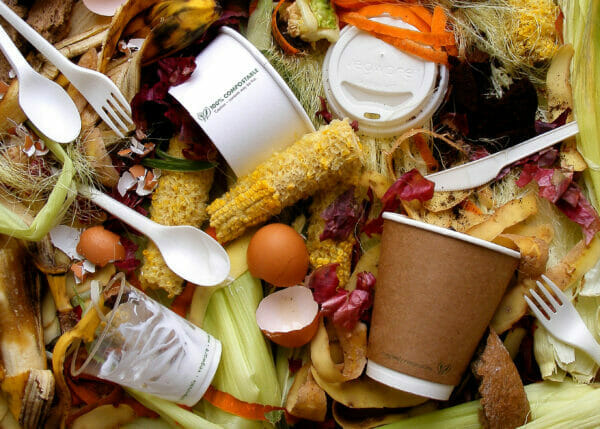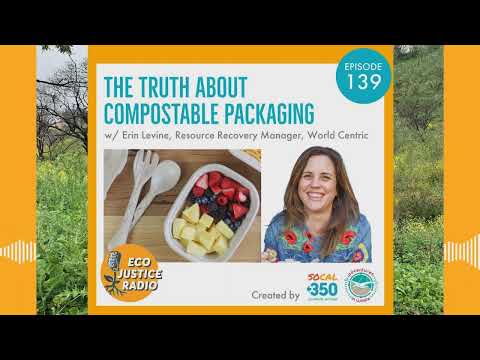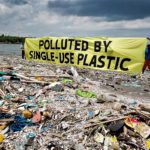

Subscribe to EcoJustice Radio:

The Ever-Changing World of Compostable Packaging
We look into the truth about compostable foodservice and packaging with Erin Levine, Resource Recovery Manager at World Centric. We delve into environmental concerns, what is actually biodegradable, how fossil fuel dependence fits into the game, and whether we should focus instead on reusable cups, bags, flatware, etc.

Watch this video on YouTube
We also talk about organics waste, which includes yard waste and plant trimmings, food scraps, and food soiled paper. At approx. 40%, organic matter is the largest contributor of material in the landfill. Waste food makes up around 20%. When this material starts to slowly decompose it creates the 3rd largest source of human related methane emissions in the USA according to the EPA. Methane is a climate super pollutant up to 84 times more potent than carbon dioxide.
Diverting wasted organics away from landfills and into systems like compost can not only reduce methane emissions, it supports healthier soils, stronger plants, and cleaner air through carbon sequestration. Composting is a climate oriented solution that we need and can enact immediately.
That being said, business and public participation in accurately separating organic waste so that it can be composted is key to collecting and processing this material, especially wasted food.
So by using compostable foodware can we divert more food from landfill, reduce ghg emissions, and lessen the consumption of single use plastics?
*Erin Levine is the Resource Recovery Manager at World Centric, manufacturer of compostable products. Erin has been involved with resource recovery for 18 years and in the last decade has focused specifically on the sales and marketing of finished compost. She has supported commercial compost facilities throughout the West Coast and has worked closely with the end users of compost, particularly the agricultural industry. Erin is a Certified Composting Professional through the US Composting Council and a Certified Compost Programs Manager through the Solid Waste Authority of North America.
*Jessica Aldridge, Co-Host and Producer of EcoJustice Radio, is an environmental educator, community organizer, and 15-year waste industry leader. She is a co-founder of SoCal 350, organizer for ReusableLA, and founded Adventures in Waste. She is a former professor of Recycling and Resource Management at Santa Monica College, and an award recipient of the international 2021 Women in Sustainability Leadership and the 2016 inaugural Waste360, 40 Under 40.
Podcast Website: http://ecojusticeradio.org/
Podcast Blog: https://www.wilderutopia.com/category/ecojustice-radio/
Support the Podcast: https://www.patreon.com/ecojusticeradio
Guest: Erin Levine, Resource Recovery Manager at World Centric.
Host and Producer: Jessica Aldridge
Engineer and Original Music: Blake Quake Beats
Executive Producer: Jack Eidt
Created by: Mark and JP Morris
Episode 139
Photo Credit: World Centric
Updated 20 August 2022













Pingback: Microplastics Are Everywhere: What’s The Risk?